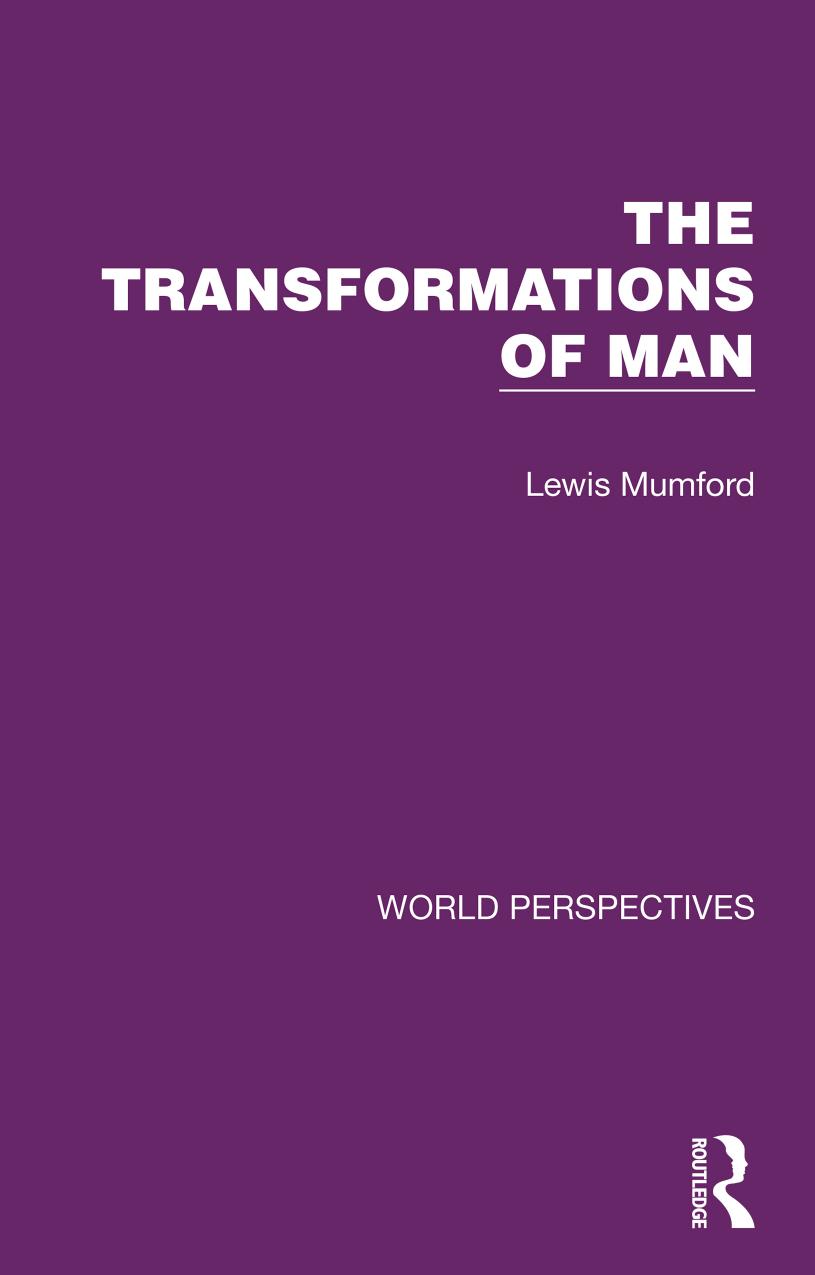The Transformations of Man by Lewis Mumford

Author:Lewis Mumford [Mumford, Lewis]
Language: eng
Format: epub, pdf
Tags: Social Science, Anthropology, Cultural & Social
ISBN: 9780844645902
Google: BiYiAAAAMAAJ
Publisher: P. Smith
Published: 1978-01-15T01:00:58+00:00
2
The New World economy, it goes without saying, did not come into existence overnight: it is only in the twentieth century that it finally reached a point of development that clearly revealed its characteristics as a complete system. But wherever it penetrated, New World culture swiftly created its own environment: dehumanised, depersonalised, mechanically ordered, uniform. Where the Old World culture held firm, as in Italy, Spain, and France, the New World culture had only a weak foothold: the strength of Catholic civilisation deprived Latin America, too, of many typical New World characteristics. The machine-centred way of life throve best, in fact, in culturally backward areas, sparsely settled and isolated; and the new towns it created were urban wildernesses, rampant with vitality, but more innocent of human amenity, more barbarous even in lack of physical utilities, than the backwoods areas of North America.
But no culture conquers through its weaknesses. From the beginning the new mechanical system recognised certain essential human needs that the Old World culture, even the highest forms conceived by axial man, either ignored or suppressed.
To begin with, the New World ideology broke through the frozen hierarchies of Old World culture. With its sense of the future, as subject to human plan and control, the New World ideology detached contemporary man from undue subjection to his immediate historic environment. What began in the Renaissance as a return to the more rational classic past now was directed into anticipation of a more rational future. In concentrating on the study of nature and the control of natural forces, the New World ideology promised to remove limitations on human power that had always been irksome: now instead of wishfully dreaming of giants and djinns that could build a palace overnight, the new inventors devised machines that magnified and multiplied all manâs powers. Physical energies that once only great monarchs commanded were now at the disposal of the entire collectivityâand in far vaster quantities. Limitations on human action that had once frustrated manâs most innocent plans were now removed.
Apart from its practical triumphs, the New World economy offered another attraction: the knowledge it placed within manâs reach was not at the mercy of his unconscious. Instead of presenting man with fitful glimpses of the whole, as in moments of mystical insight, the new science systematically put together minute fragments which, when formulated by minds with a high capacity for abstraction, could be worked into intelligible fields of verified knowledge. Where arbitrary revelations had once produced false explanations of natural processes, sanctified by equally arbitrary authority, science provided a self-corrective method for establishing truths, in a new spirit of humility and self-effacement. The criterion of truth ceased to be the authority of the person: ̵I say thus.â It rather became the demonstration or the trial: âIt works thus.â
Though the new method did not do justice to human experience in its wholeness, including what was subjective, self-begotten, or unique, it did at least give security and the power of limited prediction over that part which could be externally observed and measured.
Download
This site does not store any files on its server. We only index and link to content provided by other sites. Please contact the content providers to delete copyright contents if any and email us, we'll remove relevant links or contents immediately.
Born to Run: by Christopher McDougall(7117)
The Leavers by Lisa Ko(6943)
iGen by Jean M. Twenge(5403)
Sapiens by Yuval Noah Harari(5363)
Spare by Prince Harry The Duke of Sussex(5173)
The Kite Runner by Khaled Hosseini(5161)
Machine Learning at Scale with H2O by Gregory Keys | David Whiting(4289)
Bullshit Jobs by David Graeber(4177)
Never by Ken Follett(3930)
Goodbye Paradise(3795)
Livewired by David Eagleman(3761)
Fairy Tale by Stephen King(3365)
A Dictionary of Sociology by Unknown(3069)
Harry Potter 4 - Harry Potter and The Goblet of Fire by J.K.Rowling(3054)
The Social Psychology of Inequality by Unknown(3013)
The Club by A.L. Brooks(2917)
Will by Will Smith(2901)
0041152001443424520 .pdf by Unknown(2842)
People of the Earth: An Introduction to World Prehistory by Dr. Brian Fagan & Nadia Durrani(2726)
